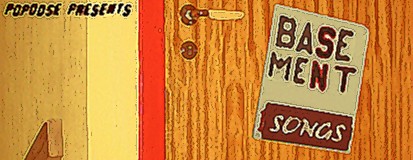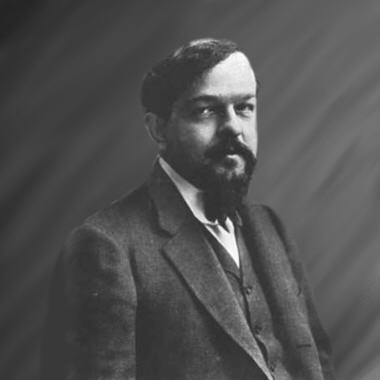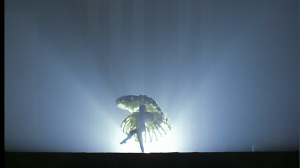
 Take a moment to sit back, relax, and listen to the following piece of music. ItÁ¢€â„¢s Á¢€Å“Clair de lune,Á¢€ written by French composer, Claude Debussy, performed by pianist John OÁ¢€â„¢Conor on his CD, Piano Classics: Popular Works for Solo Piano.
Take a moment to sit back, relax, and listen to the following piece of music. ItÁ¢€â„¢s Á¢€Å“Clair de lune,Á¢€ written by French composer, Claude Debussy, performed by pianist John OÁ¢€â„¢Conor on his CD, Piano Classics: Popular Works for Solo Piano.
Debussy originally composed this delicate work in 1889 for his orchestral suite, Suite bergamasque. My classical music knowledge is limited. I was exposed to the great masters through Cleveland Orchestra concerts as a child or hearing classical music while my father drove me around town (he liked to listen to it LOUD); however, my interests were in rock and roll and some jazz. As a teen and into college the most personal attention I gave orchestra music came through the soundtracks from the films I loved. ThatÁ¢€â„¢s how I came to know Á¢€Å“Clair de luneÁ¢€ for the first time — through a movie.
I first saw Philip KaufmanÁ¢€â„¢s 1983 epic, The Right Stuff, in the fall of 1989. KaufmanÁ¢€â„¢s adaptation of Tom WolfeÁ¢€â„¢s famous book is an exciting, inspirational, funny and very human story about the United States race to get manned flights into space. It contrasts the story of test pilots like Chuck Yeager, who were breaking the sound barrier, but were never selected to be astronauts, and the Mercury Seven, the first men trained and eventually shot into the great unknown. Besides the incredible special effects that hold up 25 years later, the masterful work of all five (!) Academy Award winning editors, the exhilarating cinematography by Caleb Deschanel, and the moving score by Bill Conti, The Right Stuff features an ensemble of some of todayÁ¢€â„¢s most respected actors who were then considered fresh faces. They include Kathy Baker, Scott Glenn, Ed Harris, Barbara Hershey, Dennis Quaid and Fred Ward. If you have not seen KaufmanÁ¢€â„¢s brilliant movie (he wrote the screenplay, as well), you should listen to my Popdose colleague Jeff Johnson and check it out immediately.
 As the film approaches the end of its three-hour running time, the Mercury astronauts are being honored by President Lyndon Johnson (a lively Donald Moffet) in Texas. After a marching band has played and the astronauts have had their fill of ribs and reporters, the men and their wives join the stadium sized crowd in watching a fan dancer perform her routine to Á¢€Å“Clair de lune.Á¢€ With a lone spotlight silhouetting her nude, nimble body, the dancer moves eloquently with her oversized plumes. As the music swells, the Mercury Seven catch each other’s eyes, not to acknowledge the woman on stage, but in silent recognition that they are elite men, that they have gone through a life-changing experience together that separates them from the rest of the world.
As the film approaches the end of its three-hour running time, the Mercury astronauts are being honored by President Lyndon Johnson (a lively Donald Moffet) in Texas. After a marching band has played and the astronauts have had their fill of ribs and reporters, the men and their wives join the stadium sized crowd in watching a fan dancer perform her routine to Á¢€Å“Clair de lune.Á¢€ With a lone spotlight silhouetting her nude, nimble body, the dancer moves eloquently with her oversized plumes. As the music swells, the Mercury Seven catch each other’s eyes, not to acknowledge the woman on stage, but in silent recognition that they are elite men, that they have gone through a life-changing experience together that separates them from the rest of the world.
ThatÁ¢€â„¢s when the action cuts to Chuck Yeager (Sam Shepard) deciding to test a new Air Force jet to see how high he can push the machine. On a bright sunny day Yeager breaks through the clouds into the EarthÁ¢€â„¢s atmosphere and sees the star -illed heavens of outer space just within his reach. At that moment the jet engines shut down and Yeager goes into a tailspin. The movie then intercuts between Yeager falling to Earth and the Mercury Seven in Texas. It is a remarkable sequence that will give you chills and leave you exhilarated.
A few years after discovering The Right Stuff I began compiling music for my senior film project. While on winter break I descended into the public library and brought home armloads of CDs and tapes from all genres hoping to find source material. Boy, how I miss the days of exploring music like I did then, to be able to pull a random album from a shelf and have the spare time to listen and come across something new that stirs my soul. Luckily I have a home at Popdose that continually introduces me to good stuff. That December in 1991 I opened up Julian Lloyd WebberÁ¢€â„¢s Encore! Travels with my Cello Vol. 2 and uncovered this stunning version of the Debussy classic.
Immediately I was reminded of The Right Stuff, which I hadnÁ¢€â„¢t watched in a year, yet I also began to appreciate the music beyond the images of KaufmanÁ¢€â„¢s film. After returning to Bowling Green for my final semester of college, I often listened to WebberÁ¢€â„¢s soothing cello to ease my worried mind and put me at peace. The music was a tonic that made the future seem not so frightening and inspired me to go for my dreams.
When Julie and I were planning our wedding, choosing the songs for the piano player as our guests arrived, I wanted Á¢€Å“Clair de luneÁ¢€ to be a part of the ceremony. Its beauty and grace felt at home in our celebration and since ours was a night wedding, the literal translation of the title, Á¢€Å“moonlight,Á¢€ was appropriate. This year our daughter, Sophie, began piano lessons. Hearing her play has sparked my interest in classical music again. Last week I dug out my OÁ¢€â„¢Conor CD to play Sophie Á¢€Å“Clair de lune.Á¢€ She listened attentively, processed it, and went off to her room. Like father, like daughter. So I pulled out the Lloyd Webber version and listened by myself, standing in the middle of our living room. Tears filled my eyes with joy from the beauty of the melody and Lloyd WebberÁ¢€â„¢s accomplished playing. After all these years, Á¢€Å“Clair de luneÁ¢€ was still able to make me believe that the future is nothing to be afraid of, and my dreams are still worth pursuing.




Comments